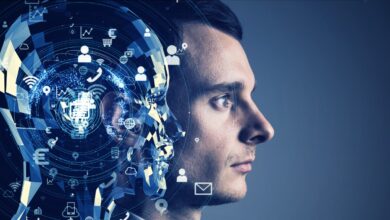AI and Job Disruption: Navigating the Future of Employment.

The rapid advancement of artificial intelligence (AI) has been a double-edged sword for the job market. On one hand, AI technologies have the potential to streamline processes, increase productivity, and open up new opportunities in various industries. On the other hand, they pose significant job risks and challenges for the workforce. As we navigate the future of employment in the age of AI, it’s crucial to understand the potential disruptions and devise strategies to adapt to this changing landscape.
AI has already begun to impact the job market in several ways. Routine, repetitive tasks are increasingly automated, reducing the need for human workers in manufacturing, data entry, and even customer service. While AI can create new job opportunities in fields like data science, machine learning, and AI development, these roles often require specialized skills that many current workers do not possess. This leads to a potential skills gap, where the demand for AI-related positions outpaces the supply of qualified candidates.
Moreover, AI can augment human workers, making their jobs more efficient, but also altering their roles and responsibilities. For instance, chatbots and virtual assistants can handle routine customer inquiries, allowing human customer service representatives to focus on more complex issues. This shift necessitates a transition in skill sets and job expectations, requiring adaptability and continuous learning from the workforce.
To navigate this evolving landscape, individuals and organizations must invest in education and training. Lifelong learning and upskilling are essential to remain relevant in the job market. Governments, educational institutions, and employers also play a crucial role in providing accessible training programs to equip workers with the necessary AI-related skills.
Additionally, policymakers need to address issues such as job displacement, social safety nets, and ethical considerations regarding AI in the workplace. It’s essential to strike a balance between AI’s potential for efficiency and the preservation of job opportunities for the workforce.
In conclusion, AI’s impact on the job market is complex, presenting both opportunities and challenges. By understanding these disruptions and proactively addressing them through education, training, and policy, we can better navigate the future of employment in an AI-driven world.




